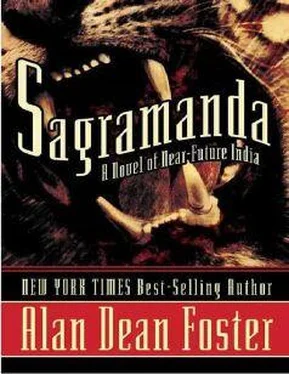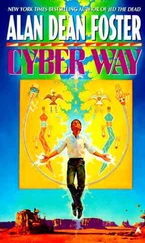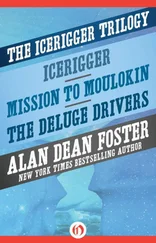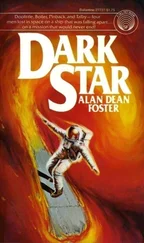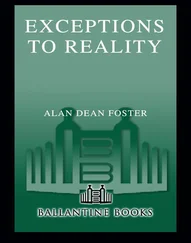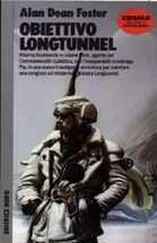Alan Foster - Sagramanda, a Novel of Near-Future India
Здесь есть возможность читать онлайн «Alan Foster - Sagramanda, a Novel of Near-Future India» весь текст электронной книги совершенно бесплатно (целиком полную версию без сокращений). В некоторых случаях можно слушать аудио, скачать через торрент в формате fb2 и присутствует краткое содержание. Жанр: Фантастика и фэнтези, на английском языке. Описание произведения, (предисловие) а так же отзывы посетителей доступны на портале библиотеки ЛибКат.
- Название:Sagramanda, a Novel of Near-Future India
- Автор:
- Жанр:
- Год:неизвестен
- ISBN:нет данных
- Рейтинг книги:5 / 5. Голосов: 1
-
Избранное:Добавить в избранное
- Отзывы:
-
Ваша оценка:
- 100
- 1
- 2
- 3
- 4
- 5
Sagramanda, a Novel of Near-Future India: краткое содержание, описание и аннотация
Предлагаем к чтению аннотацию, описание, краткое содержание или предисловие (зависит от того, что написал сам автор книги «Sagramanda, a Novel of Near-Future India»). Если вы не нашли необходимую информацию о книге — напишите в комментариях, мы постараемся отыскать её.
Sagramanda, a Novel of Near-Future India — читать онлайн бесплатно полную книгу (весь текст) целиком
Ниже представлен текст книги, разбитый по страницам. Система сохранения места последней прочитанной страницы, позволяет с удобством читать онлайн бесплатно книгу «Sagramanda, a Novel of Near-Future India», без необходимости каждый раз заново искать на чём Вы остановились. Поставьте закладку, и сможете в любой момент перейти на страницу, на которой закончили чтение.
Интервал:
Закладка:
It had been almost two years since he had left the village. The first months in Sagramanda had been horrible. As it did to all who strug gled to embrace it, the city had overwhelmed him; with its size, the fury of the competition just to survive, the traditional threats and new dangers. But the two weapons he had brought with him-his studied command of English and his slight but steadily growing knowledge of computers-had soon raised him up above the millions of lost and abandoned souls who populated the streets.
It was as true as the government announcements that repeatedly played on the village computer back home had claimed: education was the key to everything.
Within six months, he had a dry place to live. Within a year, he was sending money home. The email he received from Chakra via the village terminal, the glowing photos of his son and daughter, and the pride inherent in their words at his success, were more than enough to inspire him to keep going, though the regular communications did less to assuage the loneliness he felt.
Next month, he promised Chakra. By next month he would have saved enough, and secured enough, to allow him to come home for a visit. What a celebration there would be then! Everyone was anxious to see him again, to hear the stories of his adventures and experiences in the city. Through sheer determination and force of will he had become, if not a Bollywood movie star, certainly a village success story.
"Chakra," he whispered to himself. Chakra sundar , beautiful Chakra. Her name was poetry. The village celebration would have to wait. Sanjay was a modest man, even shy. But back in Chakra's arms again, after nearly two years, he intended not to stir from his house, newly renovated by her with some of the money he had succeeded in sending, for at least two days. It would be two days they would not spend sleeping. He smiled, and his fellow passengers could only stare at him and wonder at the source of his contentment.
The maglev was not only the fastest way into the heart of the city, it was the safest. More expensive than the old subway to be sure, but Sanjay felt he could afford it now. Peering out from the confines of the economy carriage at the endless expanse of conurbation, he could for the duration of the journey feel that he had risen figuratively as well as literally above the uncountable masses that swelled the city to unman ageable size. Yet unmanageable or no, somehow it all held together. Somehow, it worked.
That was India, too. Knowing it gave him a feeling of pride.
From Mahout Station he took a bus. Fuel-cell powered, electric-engine driven, it contributed no emissions to befoul the already dan gerously polluted urban air. Sanjay was able to breathe freely as he stepped off, however. It was nearing the end of the monsoon season, and recent rains had washed the atmosphere above the city blissfully free of contaminants. If the climate was kind, he would not have to wear his face mask for another month or two.
As if to bless the new day a light rain began to fall. Not the kind of thunderous torrent of a downpour that characterized the full mon soon. This was more of a last parting kiss. It would be a good day. Around him, towering new skyscrapers blocked the morning light from the city's half-restored historical district. His destination, his shop, lay nearby, chosen as much for its proximity to public transport as for its commercial viability.
Being located near the historical district, with its venerable old buildings and museums, meant tourists. Tourists meant money. Since most of them had not the slightest idea how to bargain properly, good money.
His tiny souvenir shop stood untouched, one of several dozen similar shops located in the old, single-story block. Ghosh's Keepsakes had a middling location, squashed tightly between Ardath's Souvenir Shop and Shankrashma's T-shirt Emporium (and souvenirs). Taxis and buses, scooters and powered three-wheeled covered rickshaws, trucks and motorcycles and bicycles and tricycles choked the streets. Private vehicles were, of course, banned from this part of the city between the hours of six in the morning and nine at night in favor of public trans port, government vehicles, and delivery trucks. Otherwise everything would come to a complete standstill and nothing would move at all.
As he removed the electronic key that would unlock his front door and disarm the alarm he had to scurry sideways to avoid the familiar warning beep of a municipal cattle remover. The hulking vehicle slowed as it neared the pair of cows who had settled themselves atop and alongside the grassy median that divided the several lanes of traffic. He did not bother to stop and watch as the driver went about the business of gently slipping the teflon-coated metal scoop beneath the first animal. As its sides came up to gently enfold and secure the mildly irritated bovine, the scoop rose upward, over the cab of the mover, to deposit the unharmed animal in the holding pen in back. By the time the process had been repeated with the remaining animal, Sanjay was already opening the door to his establishment. The achievement of which he was perhaps most proud and for which he was certainly the most thankful greeted him with a soft whine as the air-conditioning sprang to life.
"Namaste-assalam aleikum-good morning." The shop's voice greeted him in Hindi, Urdu, and English, as it would any of his customers should he find himself busy with stock in the back room.
It was a long way from having to rise before dawn to eat dirt and dust in the village fields, he reminded himself gratefully. He tried to make a moment most every morning to render such thanks.
The register's box tunnel sprang to life at the touch of his fingers. There was nothing much more to do except set the tea to boiling, which he did with a verbal command to the shelf-mounted unit.
Ready, alert, and open for business, he called forth the morning's Times in the tunnel. Indulging in an addiction that was common to hundreds of millions of his fellow citizens, he went straight to the Entertainment pages. Outside, traffic flowed a little more smoothly now that the morning's wandering cattle had been relocated. Afternoon might see a family of curious monkeys ambling down the boulevard, though with the rain the local troops of langurs might choose to remain among the trees in the nearby park.
Confirmation that it was going to be a good day came when his first buying customers turned out to be a quartet of visiting Japanese. They were young, energetic, and chatty. As expected, the first thing they did was have their picture taken inside the shop. Sanjay had grown sufficiently sophisticated in the ways of foreigners to know that the Japanese never took pictures of places they visited. They only took pictures of themselves standing in front of places they visited.
Obsequious shopkeeper and eager tourists communicated in broken English, of which Sanjay's command was by far the greater. He was careful to defer to his visitors, of course: admiring their attire, complimenting them on their English, expressing astonishment at their bargaining abilities, remarking favorably on their taste, and being sure to add a ten percent surcharge onto their purchases for ship ping costs as well as another seven percent for the use of credit cards. Not to mention the thirty percent overall profit he made on the entire sale once they had worn him down to half his initial asking price on every item.
While they went away happy, he treated himself to a cup of second-pick green Darjeeling, with extra sugar and cream. Sealed tightly nearby was the hand-wrapped packet of Ruby Clonal first pick, but such exclusive tea was reserved for customers who purchased only the best his poor shop had to offer. That meant trinkets of gold and gemstones, not mass-produced sandalwood carvings or inlaid marble boxes from Agra.
Читать дальшеИнтервал:
Закладка:
Похожие книги на «Sagramanda, a Novel of Near-Future India»
Представляем Вашему вниманию похожие книги на «Sagramanda, a Novel of Near-Future India» списком для выбора. Мы отобрали схожую по названию и смыслу литературу в надежде предоставить читателям больше вариантов отыскать новые, интересные, ещё непрочитанные произведения.
Обсуждение, отзывы о книге «Sagramanda, a Novel of Near-Future India» и просто собственные мнения читателей. Оставьте ваши комментарии, напишите, что Вы думаете о произведении, его смысле или главных героях. Укажите что конкретно понравилось, а что нет, и почему Вы так считаете.
